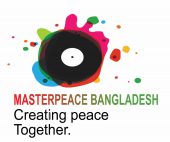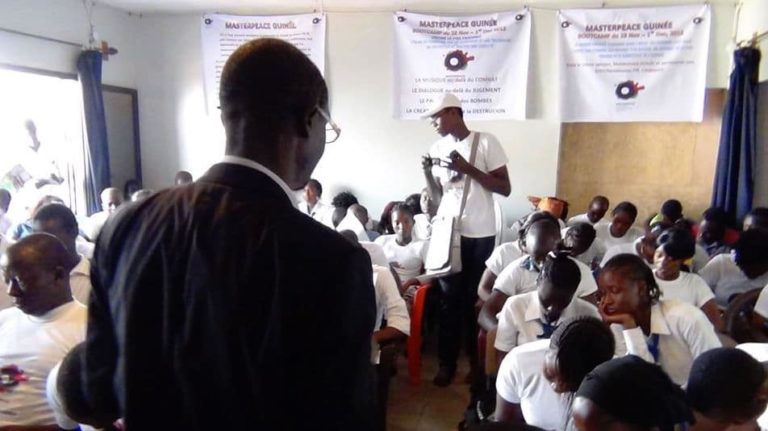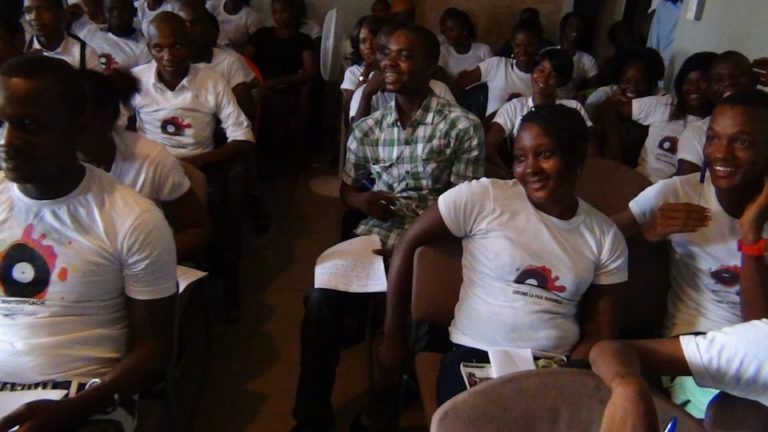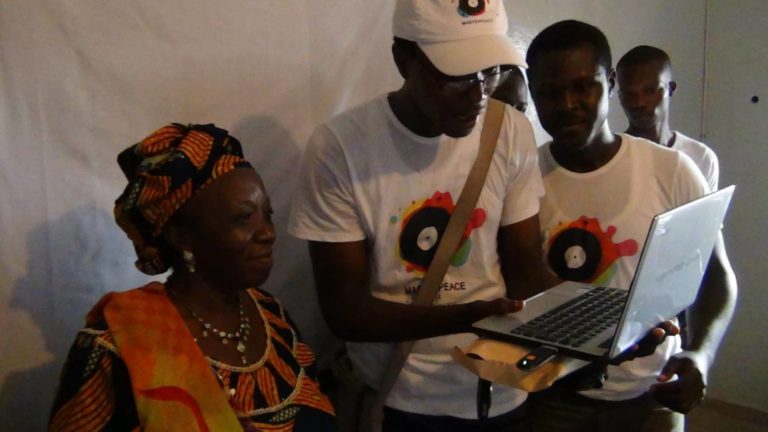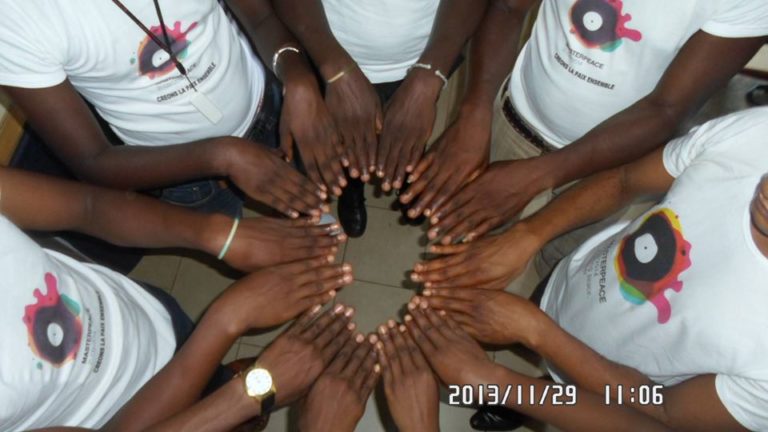Guinea: A Solution To Migration


Louise Alves
Talentbanker at MasterPeace Core Team
The issue
The MasterPeace Club in Guinea has been active for 5 years working on projects of mobilizing youngsters. Also, they work on raising awareness, teaching and educating rules and methods to avoid Ebola. This project is reaching its end as Guinea has been declared Ebola Free, which is an example of the Club’s success in the country. However, they are eager to do more for their community. After sharing his story about the project in Guinea during the Bootcamp in Tunisia, Phillip Kpakiwa – the representative of MasterPeace club in Guinea – told us how they found an interesting solution to the migration issue in the country.
In Conakry, the capital city of Guinea, Phillip had an idea based on what was going on in his community. It was noticeable that people were disappearing every week in his community. The reason behind it was that many young people were leaving to search for a better life across the Mediterranean sea.
He said that young people rely on what they see on social media to believe that a life in Europe can transform their lives for the better. After identifying the powerful role of social media in influencing young people to adventure through the mediterranean in perilous journeys, Phillip decided to start raising awareness of the dangers of this type of migration.
Since there is a disbelief in the government’s ability to transform young people’s lives by the community, they decided to use the same trends to instigate young people to develop marketable skills and become entrepreneurs. The project’s idea was to instigate them to transform their own communities from within, rather than attempt to migrate.
Raising awareness
The project is called Action Against Illegal Migration and it consists of two steps. The first one has been already established in schools in Conakry. They started by establishing partnerships with local schools and community groups, creating a platform of sensitisation and awareness. Using the influencing power of images, they raise awareness of the ‘dangers of the sea’. The project targets young people from the age of 15 and above, but most of them are around 18 to 20. According their previous researches, people from the age of 15 and above are the ones most likely to try to migrate through the sea.
The purpose of the first step is to create a real picture of what it is to migrate through the Mediterranean. Firstly, the dangers encountered in the perilous journeys in the sea. Secondly, the difficulties faced by the ones who make to Europe such as lack of government support and public services, lost of your origins, no documents, obstacles to find housing and jobs, etc.
The solution to the migration problem
The idea for second step of the project – yet to be implemented – came after the young people targeted in the first step started questioning them. “What are we supposed to do?”. The solution for this question and for the issue of migration is to find ways for young people to stay and to empower them to transform their communities. How? Engaging young people in meaningful activities.
The second phase would be a widespread of the phase already implemented, giving a solution to a more systematic problem. Engaging them in activities such as skills training, entrepreneurship programs, micro business and micro projects, would be a innovative way to empower them with tools to transform their realities.
The definition for the second phase is laid down and they are now seeking funding. They will partner with experts with specific skills and with organisations to provide skills trainings – such as plumbing, electrical, construction. In addition, they will identify talents to match with institutions.
Challenges and lessons
Action Against Illegal Migration faced logistical challenges such as the lack of transportation for the young people involved in the project, and systemic ones such as the community’s religious belief that young people’s disappearance in the mediterranean is due to God’s fate.
Despite the resistance, they already managed to give a huge step forward. They impacted the community, showing them real life examples – such as Philip’s – of people who have lived abroad in Europe and USA, but decided to come back to Guinea to give back to their communities. According to their evaluation, since the implementation of the campaign, there was a great reduction of young people’s intent to go to Europe. They conducted interviews and collected data from the people in the community to assess the number of people traveling through the mediterranean since the implementation and found that there was a decrease in the number.
Another big lesson learned was the building of a community through fighting a common cause. By targeting this issue, lives will be saved and talented young people will be kept for the sake of Guinea’s future. The passion to transform their communities it is what keeps young people motivated.
